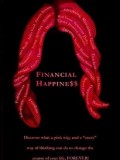 Thirty years ago, the youth of Generation X was portrayed by Hollywood as being narcissistic, selfish, and rebellious. Regardless of whether that characterization was true or simply an exaggeration, the Gen X youth of yesterday is now all grown up, and is now likely more concerned with their financial future and saving, rather than “Saving Ferris.”
Thirty years ago, the youth of Generation X was portrayed by Hollywood as being narcissistic, selfish, and rebellious. Regardless of whether that characterization was true or simply an exaggeration, the Gen X youth of yesterday is now all grown up, and is now likely more concerned with their financial future and saving, rather than “Saving Ferris.”
Indeed, the oldest members of Generation X are or will turn 50 in 2014, and the youngest are on the cusp of turning 35, ages which carry both cultural and financial significance. As a result, most GenXers are (or should be) the next demographic target for financial services providers.
But marketing to this diverse group of consumers can be difficult, due to the wide variation in experiences and attitudes. The oldest GenXers were in their early 20s when Black Monday occurred in 1987, whereas the youngest GenXers were still in elementary school. Meanwhile, when Internet-based discount brokers hit the scene in the late 1990s and early 2000s, the youngest members of the generation had never experienced a world (as adults) when financial information and news was more than a click away.
“While often considered as a monolithic entity, the members of Generation X have very different experiences based on their relative ages,” says Keith Kirkpatrick, principal with 4K Research & Consulting, LLC, and author of the new study, Marketing Financial Services to Generation X. “Combined with variations in household income, educational attainment levels, and the presence of children, it can be difficult to identify the most effective and efficient way to engage GenXers when marketing financial services.”
Marketing Financial Services to Generation X is a new report released by 4K Research & Consulting, LLC, which draws on an online survey conducted by ORC International of 1,000 U.S. adults that were born between 1964 and 1979. Respondents were asked about their current financial holdings, the sources they use to receive financial news and information, the sources they primarily use when selecting asset classes in which to invest, and their biggest investment concerns.
A few of the survey’s highlights include:
– 70% of GenXers hold some type of investment, while 30% do not hold any financial investments. The nearly one in three GenXers that do not currently invest represent an opportunity for financial marketers to reach a potential market of more than 19 million new customers.
– More than half (54%) of GenXers surveyed consider retirement planning their primary financial goal. · Despite potentially having the greatest need for planning for retirement, just 35% of those in the lowest income bracket (household income of less than $35K per year) consider retirement planning to be their primary investment goal.
– A greater percentage of GenXer men (23%) cited experiencing a market correction as their biggest investment concern, compared with just 16% of women. However, 20% of women, compared with just 15% of men, cited the fear of paying too much in fees as their primary investment concern.
– Just under half (47%) of GenXers said that direct contact from an adviser or financial services company was the source that held the most influence into the decision to purchase a particular asset class, besting information on a Web site, information on social media or community sites, or print or TV advertisements.
Another interesting finding was the limited knowledge and usage of alternative investments, which in this survey were defined as microloans, peer-to-peer lending programs, alternative currencies, or microfinance opportunities. While many of these programs were initially devised as a way to fund programs or countries in the absence of traditional sources, they have increasingly become a way for everyday investors to generate returns with a relatively low correlation to the equity or bond markets.
While 4% of GenXers surveyed invest in these types of asset classes, 38% of those surveyed cite a lack of familiarity with them as the key objection to investing, rather than a fear of risk, lack of liquidity, or the lack of detailed risk information.
4K Research & Consulting, LLC, provides qualitative and quantitative research and consulting services to US businesses. www.4kresearch.com














